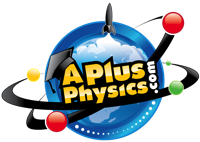So, almost two months in to my first experience with Skills Based Grading (SBG) and I’m simultaneously thrilled and disappointed.
I’m thrilled to have such terrific information on my students. It’s easy to see where they’re improving, where they’re struggling, and where I need to spend more time and adjust my instruction. My whole school district is watching to see how my classroom experiment with SBG works out, and the philosophy, the strategy, and even the technology are all aligned to provide students multiple pathways to success.
In my class, we work all year to build student independence. We spend time reading a technical text, writing for learning, working our way up Bloom’s Taxonomy in the Cognitive Domain, building, modeling, reflecting, and learning how to teach ourselves. Each topic is supported by in-class lessons, laboratory activities, inquiry activities, simulation activities, large group practice, small group practice, and individual practice. But in all cases, the responsibility for learning resides with the student.
 It’s disappointing to see how few are taking advantage of all the opportunities and resources to fill in the gaps in their knowledge and push ahead to mastery. A recent reflection in which students wrote about what they liked about class, what they hated, and what they would change opened my eyes. Wide. Eight weeks into the year and I have had a grand total of four students undertake reassessments. And of those four, only two have made a habit of cleaning up their misunderstandings. Not surprisingly, these two have demonstrated very high levels of improvement, and are now regularly among the top scorers in any assessment.
It’s disappointing to see how few are taking advantage of all the opportunities and resources to fill in the gaps in their knowledge and push ahead to mastery. A recent reflection in which students wrote about what they liked about class, what they hated, and what they would change opened my eyes. Wide. Eight weeks into the year and I have had a grand total of four students undertake reassessments. And of those four, only two have made a habit of cleaning up their misunderstandings. Not surprisingly, these two have demonstrated very high levels of improvement, and are now regularly among the top scorers in any assessment.
Many stated they liked physics, they understood why we did what we did, and offered constructive suggestions such as more/less hands-on labs, more/less practice work in groups, more/less simulations, etc. Many stated the grading policy was new and uncomfortable, and they were getting used to it. Quite a few stated that they enjoyed the fact that they were graded on their performance, not effort, and they felt in control of their grades. I even expected the comments sharing students’ frustration that I answer most questions with questions.
More troubling, however, were the comments stating that students wanted homework to be graded, otherwise they didn’t see the point in doing it. Or the comments surrounding their strong desire to have an effort grade (“it’s not fair that you grade us only on our ability to meet the standards.”) Or the comments reflecting student dismay that I don’t hand out note packets at the end of every unit (even though class notes from each day’s class are posted on the web ~ 5 minutes after each class, and can even be subscribed to with an RSS feed, in addition to the entire general curriculum online). And I remain absolutely dismayed by the four comments stating it was unfair that I posted the solutions to review problems online, requiring students to check their own work.
I’m sensing a trend that my kids want me to hand out the information they need to solve test-type problems, and follow a more traditional “drill and kill” strategy. What I need to impress upon them, however, is I expect more than correct answers… I want understanding, I want transfer, I want exploration – and I want it for their sakes. I realize they’ll forget most of what they learned in physics a few years down the road, but the underlying skills we seek to develop are so much more important: how to learn independently; how to communicate effectively; how to build your own understanding; and most importantly, how to attack a problem you don’t know the answer to.
So I’m torn. I love the SBG philosophy, and I absolutely believe that what I’m doing is what should be done in classrooms. I don’t grade homework — I shouldn’t have to (it does receive feedback, just not a grade). But I also understand that I’m under the magnifying glass in my district as I pilot SBG, and one of the metrics I will be judged on is year-end student performance on a standardized physics exam. Don’t get me wrong, I’m in a great district where administration truly understands the “bigger picture” and focuses on what’s best for the student. Nonetheless, we have goals and targets for student performance, and it would be hard to justify expanding SBG with decreasing student performance.
Based on student participation and engagement without “points” as a motivator at this early stage, I’m concerned my class scores will be down this year. Are they learning a more important life lesson? I truly think so. But is it my job to teach life skills, or to teach physics? I like to think both, and I’d even go so far as to say the life skills are more important. However, my success, the success of our SBG experiment, and the success of my students, at least in the short term, are measured in part by students’ ability to correctly solve physics problems, and that requires them to engage and practice.
I had a heart-to-heart with my classes today, and we’re changing up a few things. I’m providing more hands-on help; I agreed to work more whole-class sample problems; I’m going to sound like a broken record pointing out the many resources available to students; but I am also requiring them to demonstrate more responsibility, independence, and professionalism. I’m hopeful our discussion leads to changes in and out of the classroom, but realize, of course, that it won’t be that easy.
 I have the best job in the world, and I love what I do, for reasons too numerous to name. But several of these reasons are both blessing and a curse… each day, each class, each student is different, and it’s my challenge to find a way to help each and every one of them grow. Some days, though, I sure wish I had a little student Miracle Gro and Weed-B-Gone.
I have the best job in the world, and I love what I do, for reasons too numerous to name. But several of these reasons are both blessing and a curse… each day, each class, each student is different, and it’s my challenge to find a way to help each and every one of them grow. Some days, though, I sure wish I had a little student Miracle Gro and Weed-B-Gone.


